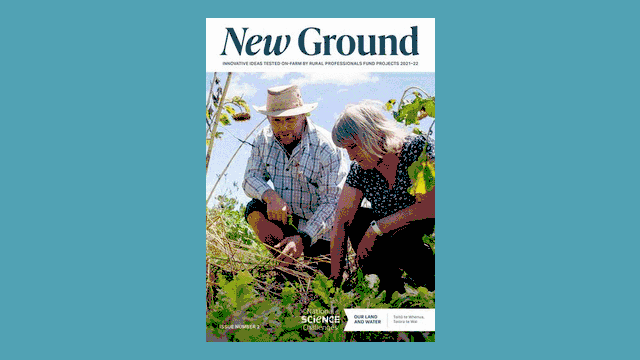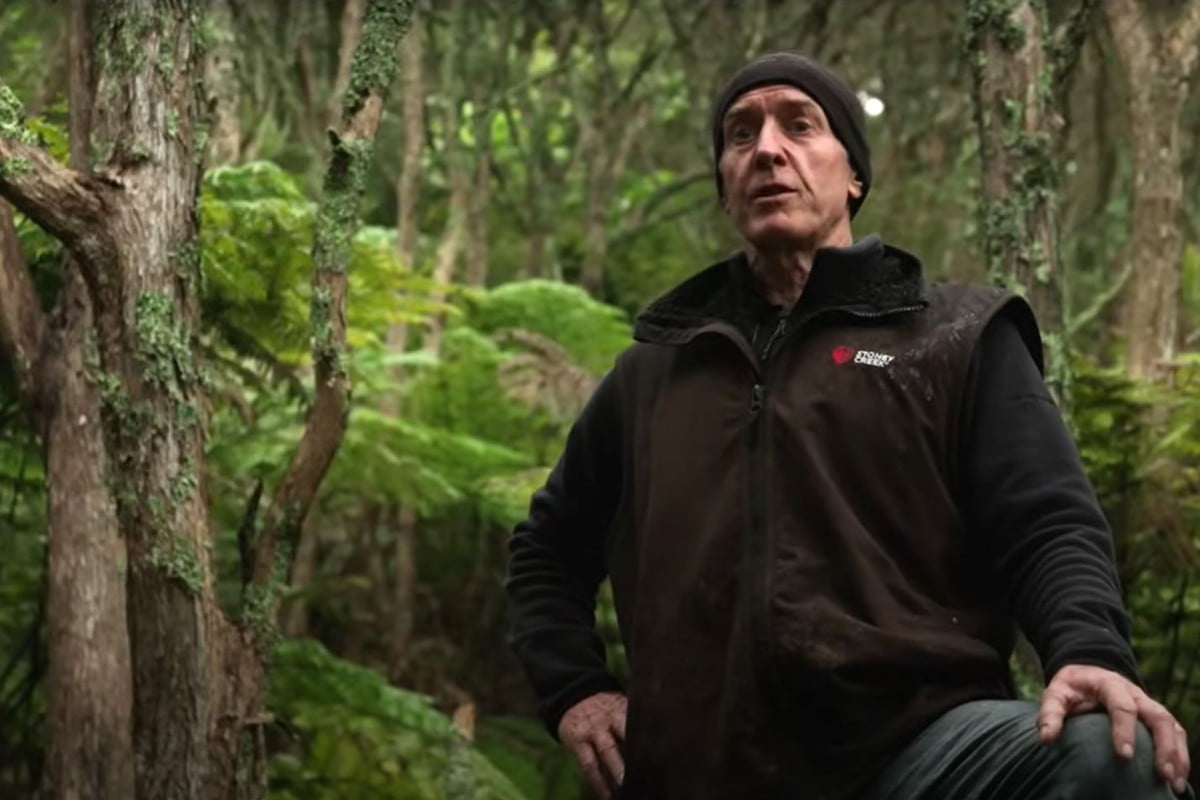New Ground for Innovations
Twelve projects were funded through the second round of the Rural Professional Fund. Communicating the results of both successful and unsuccessful projects was a crucial part of the process. We've summarised the projects in a short magazine.
One of the main aims of Our Land and Water National Science Challenge is to develop practical tools and resources to help farmers add diversity, increase resilience, and tackle environmental challenges for their farm, catchment, and community. Although much of our funding is allocated to scientists and other researchers engaged with the big-picture issues of the day, we also appreciate that the ability of Kiwi farmers to solve their own problems has moved way beyond innovative ways with Number 8 fencing wire.
To support on-farm innovations, two years ago we launched our Rural Professionals Fund with strong encouragement from the New Zealand Institute of Primary Industry Management. This fund is for the rapid testing of innovative ideas that could enable Kiwi farmers to identify new ways to take care of their land and protect their sustainable farming legacy. The fund connects innovative farmers and entrepreneurs with researchers who can help assess and develop their ideas, and with rural professionals who can share the ideas with other farmers.
In the first funding round (2020) the Rural Professionals Fund received 31 applications, of which 15 were selected for funding, encompassing a wide variety of farm systems, industries and ideas. The timeframe of 6 months and funding limit of $50,000 were challenging, and we commend the project teams for all they achieved in the inaugural round.
In 2021, round 2 of the Rural Professionals Fund saw 12 projects funded from 47 applications. The investment was bumped up to $75,000 per project, and a longer period of 9 months was allowed. As in the previous year, some projects received co-funding from other organisations, and all were boosted by the time freely donated by participants.
Communicating the results of both successful and unsuccessful projects to the wider rural profession and farming community is therefore a crucial part of our process. We've summarised the 2021–22 projects in a short magazine, so you can read about both the projects with promising results, and those that didn’t quite work out as anticipated.

We are now underway with our third funding round, which closed in August 2022. Twelve projects (from 32 applications) began in October and tackle questions such as:
- Can weed spray strips be replaced by growing perennial ground cover plants under fruit trees?
- What are the economic and environmental implications of differing wintering options?
- Can pines be used as an effective nurse crop to establish native bush on farmland?
- How do dairy farmers develop a composting shelter or ‘mootel’?
- Will electrocoagulation dairy waste treatment be cost-effective and enable water recycling?
- Can green crops capture enough nitrogen for vegetable growing?
- What is needed to enable arable farmers to develop on-farm processing mills to support food security?
A fourth funding round opened for applications on 13 December 2022 (closing on 6 March 2023). This will be the final Rural Professional Fund as our Challenge is scheduled to conclude in mid-2024. Once again we are seeking applications for projects that target new ways of doing things across the agri-food and fibre industries, support diversification of land use and practices and create behavioural changes.
Funded projects all have one thing in common: That proof of concept could create wider benefits for New Zealand farming communities, our land, or our water.
If you have an innovative idea that aligns with the mission of Our Land and Water, please don’t miss out on this next, and final, opportunity to secure some funding for its development and communication. In the meantime, we hope you enjoy reading about the outcomes of round two.
More information:
- Download PDF: New Ground, December 2022
- Apply for funding from the fourth and final Rural Professionals Fund
Author
 View Our Strategy Document 2019 – 2024
View Our Strategy Document 2019 – 2024




Leave a Reply